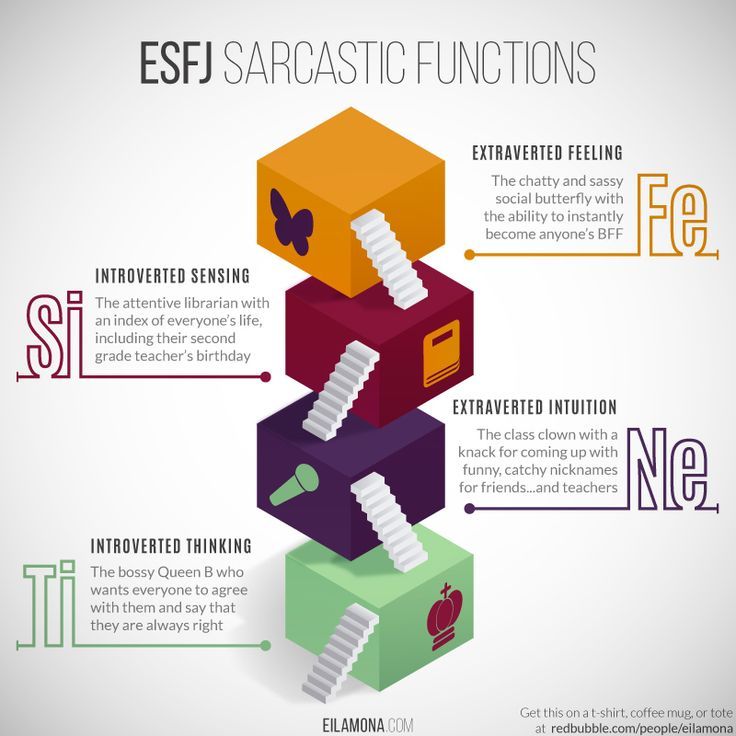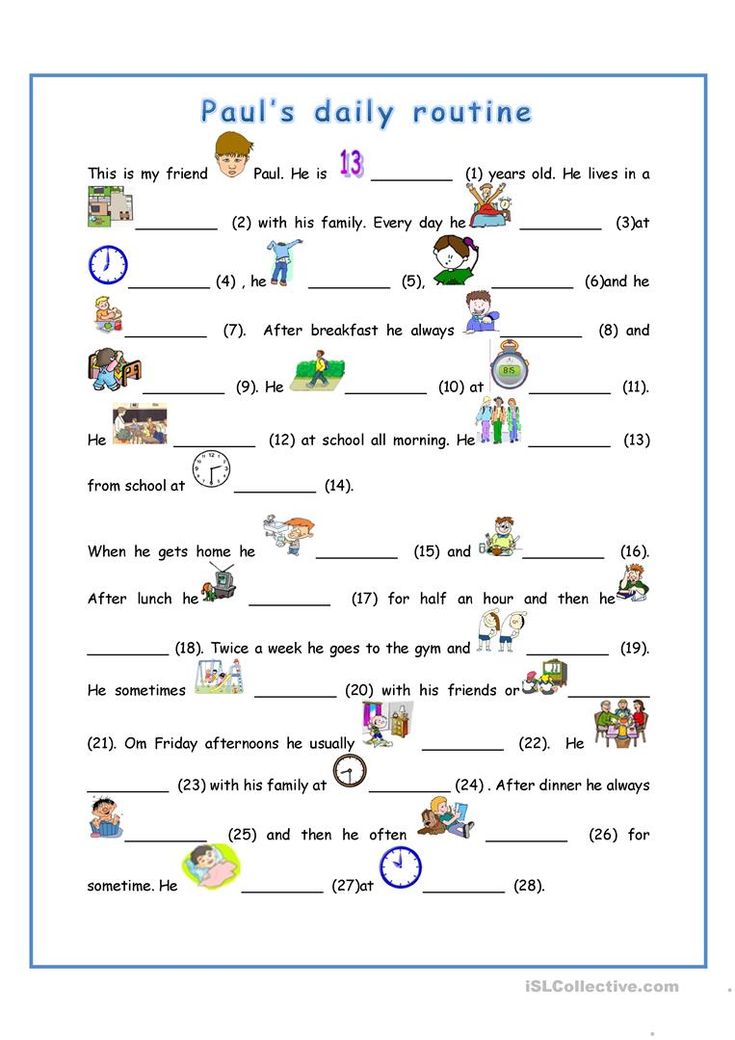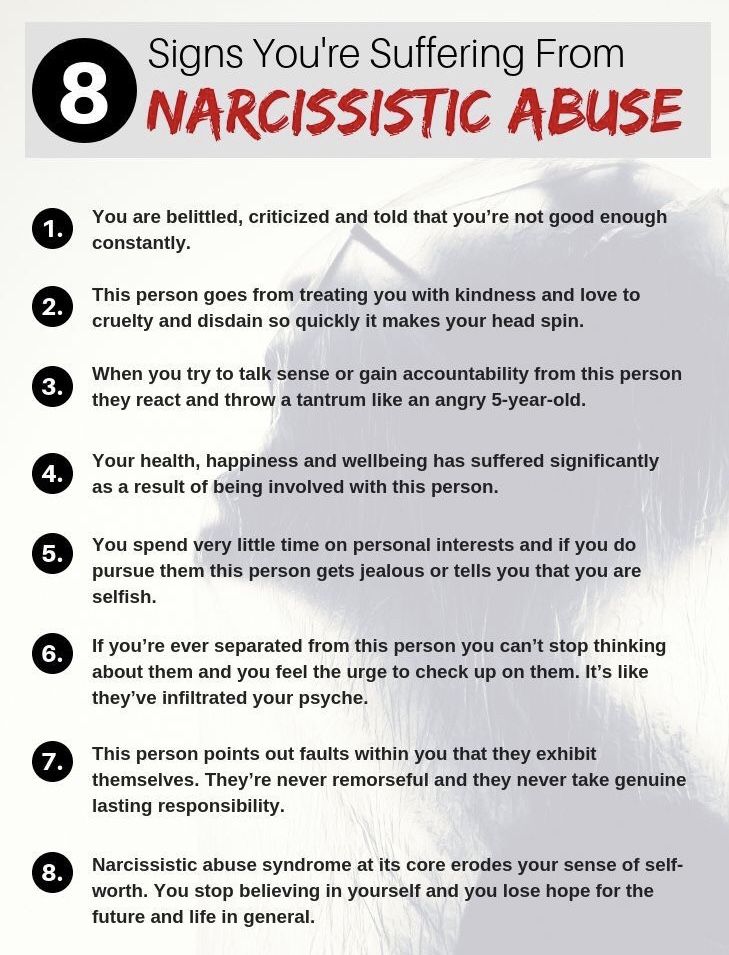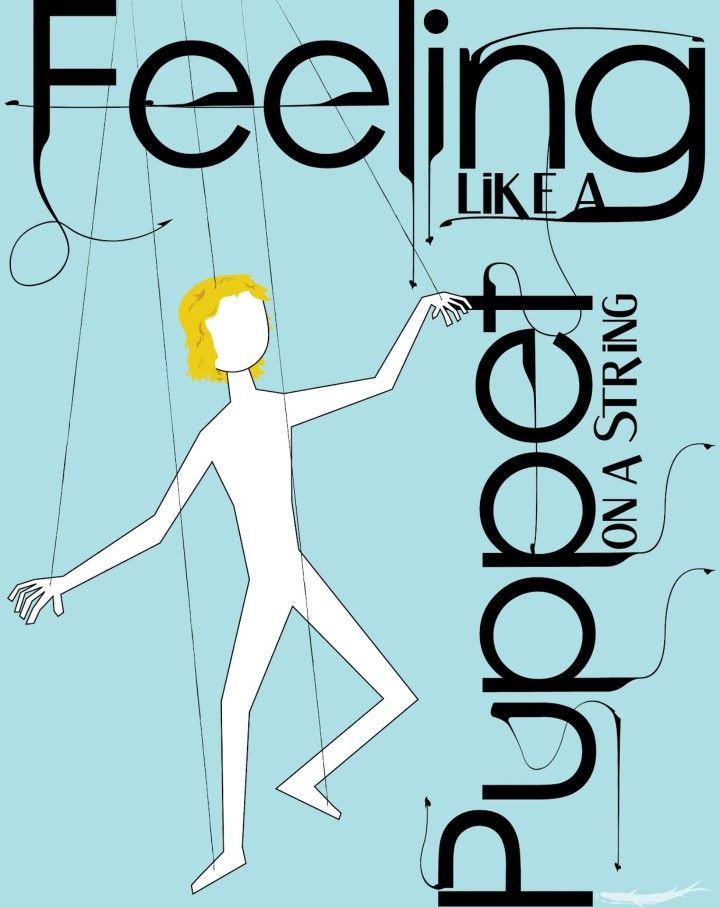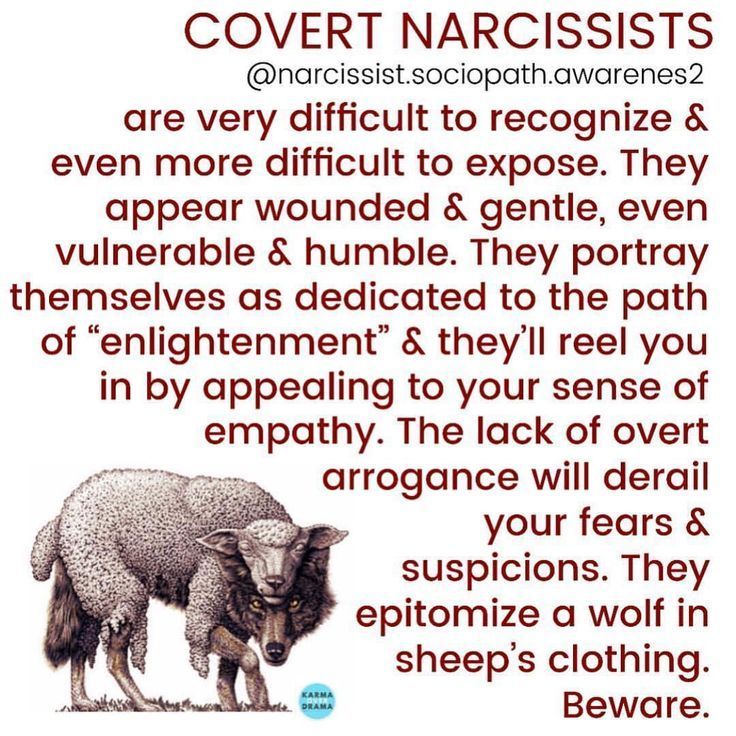Most emotional personality type
The Emotional World of Every Myers-Briggs® Personality Type
Updated June 24th, 2021
Does your personality type have anything to do with your emotions? Many people, especially those who are new to type, connect emotional expression and discernment with a Feeling preference. But is this really accurate? Are feelers more emotional than thinkers? Absolutely not! Every human feels emotions – every personality type can feel them with the same depth and severity. But every one of us will evaluate them using different criteria based on our Myers-Briggs® personality type and our enneagram type. Today we’re going to explore the different ways that each type experiences emotions – keep in mind that your experience might vary based on your Enneagram type, any mental illness you might struggle with, and your life experiences.
Not sure what your personality type is? Take our new personality questionnaire here. Or you can take the official MBTI® here.
Table of contents
- The Emotional World of Every Myers-Briggs® Personality Type
- The ENFP
- The ENTP
- The INFP
- The INTP
- The ENFJ
- The ENTJ
- The INFJ
- The INTJ
- The ESFP
- The ESTP
- The ISFP
- The ISTP
- The ESFJ
- The ESTJ
- The ISFJ
- The ISTJ
- What Are Your Thoughts?
Estimated reading time: 14 minutes
The Emotional World of Every Myers-Briggs® Personality TypeThe ENFPPossibility-oriented and caring, ENFPs often feel a need to get alone with their emotions in order to analyze and ascertain their deeper meaning. More engaged with ideas than emotions, ENFPs can feel compelled to ignore their emotions and focus on abstractions and flights of ideas instead. It is usually when they get alone and the outer world quiets down that they realize there’s a deep well of emotional imagery bubbling to life inside of them. They may suddenly realize that they have a strong conviction about something they hadn’t realized before. Depths of longing, ethical evaluations, and emotional imagery fill their minds. This is when they assess whether they’ve spent their day living in accordance with their convictions and deeply-held values. Alone time is an essential part of an ENFPs day because of this reason! Without it, they become more detached from their emotions and values, and may quickly make decisions without realizing their own true position on the subject.
Read This Next: 3 Weird and Wonderful Secrets About the ENFP Personality Type
The ENTPCreative and competitive, ENTPs are often misrepresented as being “trollish” and confrontational. However, average or healthy ENTPs are much more empathic than people realize. These types are highly aware of the emotional world surrounding them and can pick up on emotional cues quickly and with surprising accuracy. They then assess those emotions with their pattern-seeking mind in order to find possibilities, meaning, and solutions. As a result, ENTPs may realize things about people that those people don’t even realize themselves. When it comes to their
own emotions, however, ENTPs can be somewhat blind. It’s much more tempting to focus on the world outside them than the inner world of feelings and emotional evaluations. They may outwardly express emotions without even realizing it as a result (it’s common for them to hear questions like, “Are you upset?” before they even realize they are upset).
Read This Next: The Unique Intelligence of ENFPs, ENTPs, INFPs and INTPs
The INFPDeep and introspective, INFPs direct most of their conscious energy to discover meaning and achieving inner harmony with their values. They are one of the most emotionally analytical personality types – having depths and complexities to their emotions that others may only briefly glimpse. Many of their deeper emotions find life in stories, causes, and images. For the INFP, emotions aren’t to be worn on their sleeve – they are precious pearls of meaning that they only share with people who have gained their absolute trust. They find a deep spark of happiness when they can bring their values into the outer world through defending a cause, creating art, or finding a community of like-minded individuals.
Read This Next: What it Means to be an INFP Personality Type
The INTPTruth-seeking and deeply analytical, INTPs expend most of their energy clarifying their thoughts, organizing information in their mind, and seeking logical congruency. They may struggle to fully flesh-out their own emotions and tend to feel overwhelmed in emotionally-charged situations. While the world of troubleshooting and logical analysis is deeply comfortable to them, handling other people’s unpredictable emotions (or their own) can feel intimidating or simply annoying. All this taken into consideration, INTPs seek emotional understanding and harmony in the world around them. They often crave emotional openness and warmth – they just don’t always know how to achieve it. They worry that by sharing their own feelings they’ll be overwhelmed by the emotional reaction of the person they’re sharing it with (this fear is usually created through life experience). As a result, their own feelings can be mysterious to them, and they may only recognize them when they hear a song or read a story that mirrors them.
Read This Next: 3 Weird and Wonderful Secrets About the INTP Personality Type
The ENFJPassionate and driven, ENFJs are deeply aware of the emotional worlds surrounding them. They can easily pick up on other people’s moods and feelings and will often structure their environment around the emotional needs of people. However, while they are very in touch with their core values, ENFJs aren’t especially analytical about their own emotional world. They are more outwardly focused than emotionally introspective and are driven towards creating a reality that aligns with their vision of what’s right for humanity. ENFJs may seem like they wear their hearts on their sleeves, and there’s a good reason for this. Inwardly mulling over emotions is usually an exercise in futility for them because they analyze emotions that are outwardly expressed. This is why they may know exactly what their friend is feeling but be blind to their own emotional distress. When they do feel emotionally overwhelmed they will typically seek out a confidante to talk to so that they can “hear” the emotion and then sort it out after it’s been externalized.
Read This Next: A Look Inside the ENFJ Mind
The ENTJVisionary and organized, ENTJs are more in touch with logic and impersonal analysis than emotional introspection. That said, in moments of solitude and quiet they may find themselves scanning through their day and picking up on emotions that they didn’t realize at the moment they were feeling. During these moments they can become laser-focused on their ethics, values, and whether or not they lived in accordance with them. This process is often privately experienced, and many outsiders may feel that they really take no time for such things. It can be a surprise to others when, as they grow and mature, the ENTJs feeling-side becomes more obvious. It’s also common for ENTJs to take up a cause for a group that they feel is oppressed, directing their energy stores and vision towards improving the lives of others. They often do this by maximizing the effectiveness of a system that directly benefits their cause (for example, streamlining the effectiveness of a non-profit that fights human trafficking).
Insightful and visionary, INFJs are drawn towards discovering future possibilities and meaning. Often described as deeply-sensitive souls, what might surprise many is that INFJs can be rather out of touch with their own feelings. Because they use extraverted feeling rather than introverted feeling, they are more aware of emotions outside themselves than those inside themselves. When INFJs are emotionally distraught, they tend to search out a way to externalize their feelings in some way. When they verbalize or write down their feelings they can understand them better and discern which feelings are valid and which might be irrational. When feelings stay internalized, INFJs can feel like they’re going to explode with confusion because they are poorly-equipped to analyze internalized feelings – only internalized theories and abstractions. That said, INFJs can be deeply aware of other people’s emotions and even absorb them, getting others’ feelings mixed up with their own. Listening to music is often a powerful way for INFJs to identify with their feelings and process them.
Read This Next: 10 Signs of an Unhealthy INFJ
The INTJINTJs direct the majority of their energy inwards, exploring meanings, connections, and patterns that might lead to new insights. And as for their reputation as stoic or unfeeling types, they are actually more deeply feeling than many people realize. Their tertiary function, Introverted Feeling, is directed inwards which results in them having very complex, nuanced inner values. They are more moved by their values and more introspective of their emotional world than many people realize. As they analyze their visions for the future they often will simultaneously tap into the deeper desires and motivations of their heart. In moments of quiet reflection, they will determine whether they’ve lived in alignment with their values and personal ethics. They are also more concerned with the feelings of others than many may realize – keeping a conscientious eye on outliers, underdogs, or oppressed individuals.
Read This Next: What it Means to be an INTJ Personality Type
The ESFPWarm, charming, and adventurous, ESFPs may not initially seem deeply introspective and emotional. However, underneath their exuberant demeanor, they have a lush internal world of emotional complexity. In their pauses and quiet moments they consider what’s important to them on a gut level, and whether or not they are being authentic and acting in congruency with their deeply-held values. Caring deeply for others, they can become intensely passionate when they feel as though someone has been wronged. They may be the first to stick up for someone who is being bullied or the angriest person in a heated debate about a social position that is close to their heart. Avid activists for personal freedoms and human rights, these types can become deeply emotional about people they feel are marginalized or bullied. In their personal relationships, these types are likely to show their feelings through action more than words – doing things to show their affection more than expressing their feelings verbally.
Persuasive, confident, and action-oriented, ESTPs are the ultimate competitors and realists. These types thrive on interacting with their environment, making things happen, and pulling off creative feats to solve problems and make an impact. Yet besides their charisma and confidence, they have an awareness of the emotional expressions of others. They can quickly pick up on other people’s emotions and have power at wielding the emotional atmosphere to make an impression, to charm, or to empathize with others. They enjoy making people feel comfortable, giving praise, and jumping in to rescue someone who is mistreated or in danger. Their emotions are directed outwards to the people around them, so they can actually be quite expressive of how they feel. They especially enjoy creating solidarity and shared purpose with the people they care about. As far as their own deeper emotions, it can take a while for ESTPs to parse through them. Feelings can strike them as somewhat out of reach and foggy and their emotions may show up more in their facial expressions than in their mind. They tend to enjoy figuring out projects and activities much more than they enjoy analyzing their inner emotional world.
Practical and compassionate, ISFPs continually weigh the situational worth or value of everything happening around and inside of them. These types are deeply introspective and care passionately about specific others; often empathizing with the underdogs, the oppressed, or the misunderstood. Gifted at getting to the heart of people’s personal struggles, they are quick to sense the emotional distance or safety of the people around them. In moments of quiet introspection, ISFPs enjoy delving into their inner world and exploring their values, actions, commitments, and emotions. They analyze whether or not they are living with integrity and alignment with their values and beliefs. The emotional world of the ISFP may not be readily apparent on the outside and they are unlikely to share their deeper emotions unless they are with someone who they trust completely. They may have an immediate emotional reaction to something only to get away to take it out in the physical world in some way – retreating to their room to cry, punch a pillow, or even paint an expression of their emotions on paper.
Read This Next: What it Means to be an ISFP Personality Type
The ISTPAction-driven and observant, ISTPs are known for their keen problem-solving abilities. When it comes to their emotional world, however, they are often in the dark. Skilled at compartmentalizing, they may stow their emotions away until they can be “of use,” only to find that they never revisit them again. When ISTPs are overtaken by emotion they are likely to try to get away from others, drive in their car, play a video game alone, go to a shooting range, or something similar. Getting their emotional exertion out physically helps them to feel capable rather than overwhelmed. That said, ISTPs are often more aware of other people’s emotions than they realize. They get sparks of intuition about how people are feeling and can often categorize those feelings, but they may not know how to respond to them. This can be a source of insecurity for them in early life, but with time and maturity, they often learn which reactions are met with approval or disapproval. They are more likely to show their deeply-felt emotions through action more than words – shoveling the snow for a loved one rather than writing them a heartfelt note, for example.
Read This Next: The Unique Intelligence of ESFPs, ESTPs, ISTPs, and ISTPs
The ESFJWarm, considerate, and down-to-earth, ESFJs seem to exude emotional understanding. They are often the first to give you a warm hug if you’re down, and often the first to grab a box of tissues for someone who is crying. They long to create a sense of intimate oneness with others and they will self-disclose their own feelings, values, and issues in order to create solidarity with someone else. Often wearing their hearts on their sleeves, they consider themselves easy to get to know and enjoy getting to know others deeply. That said, for all their warmth and openness, these types can be relatively oblivious to their own emotions. Their focus can become so outwardly directed that they lose sight of their own feelings. It’s more natural for them to identify emotions outside of themselves than the ones harboring within. They may even take on other people’s emotions, crying when others cry or laughing when others laugh – sometimes without even realizing why.
Hard-working and motivated, ESTJs strive to achieve goals and create stability for themselves and their loved ones. While their emotions may not seem immediately obvious, they can have moments of deep introspection. When they are alone and their tasks are over they may choose to analyze their feelings, how they’ve been affected by the experiences of the day, or how the people around them are feeling. Their emotions are usually relatively private unless they are extremely stressed. During highly stressful moments they can seem uncharacteristically angry or sensitive, but this usually dissipates quickly as soon as the stress is resolved. While these types might seem all about logic and objectivity, they are more passionate about certain causes than many people realize – especially as they get older. They desire to live a life that benefits the world in some way. Determined to make a difference, they are often drawn towards causes that touch their hearts. Whether those causes are political, religious, humanitarian, or otherwise, they will usually find a way to help those causes through their thinking power. Organizing projects, solving problems, and raising money for their causes will usually be the way they show their dedication.
Conscientious and dedicated, ISFJs often exude warmth and compassion. These types easily pick up on the emotional cues of the people around them and work to create a sense of harmony and comfort. It’s important to them that people feel at ease in their presence, even if they have to make self-deprecating jokes or reveal their own flaws to make someone else feel comfortable. Reflective and considerate, they often explore their emotions through journaling or a one-on-one conversation with a close friend. They also might analyze their emotions as they watch movies or listen to songs that mirror their current emotional state. They often have favorite songs, movies, or books that they befriend when they are experiencing particular emotions or moods. Attending to other people emotionally and physically is something they often prioritize. In fact, they may often prioritize other people’s emotions and well-being more than they prioritize their own.
Read This Next: What it Means to be an ISFJ Personality Type
The ISTJSensible and detail-oriented, ISTJs are masters of logistics and organization. They are often touted for their dependable nature and systematic way of accomplishing things, but what many people don’t take into account is their emotional world. ISTJs have deeply-held values and feel very strongly when they are faced with something that aligns with or against their moral code. Their deep determination to be dependable, to take care of their communities, to do their best at their job – all these things stem from their innate desire to live up to their inner values. While these types might seem somewhat aloof and stoic to many (especially non-family members), they actually have very strongly-held values and emotional ties to loved ones and to meaningful memories and traditions. In later life many ISTJs feel compelled to shepherd others towards the values that are significant to them. In younger life, they may have a little less desire to do this and can be a little more out of synch with their emotional world.
Read This Next: 5 Strengths of the ISTJ Personality Type
What Are Your Thoughts?Do you agree with this article or disagree? Let us know your insights and thoughts in the comments!
Find out more about your personality type in our eBooks, Discovering You: Unlocking the Power of Personality Type, The INFJ – Understanding the Mystic, and The INFP – Understanding the Dreamer. You can also connect with me via Facebook, Instagram, or Twitter!
- More
The Emotion Each Myers-Briggs® Personality Type Struggles to Express
Are there certain emotions that you express with ease that others seem to conceal with every possible effort? Or is it the reverse? Maybe you feel like concealing emotions that others have no issue showing! Everyone experiences emotions. It doesn’t matter what your personality type is, the whole gamut of emotions is there for everyone to dive into at various points in their lives. Every type feels these emotions and many more on a regular basis, but they may try to hide them from others for various reasons. Which emotion do you struggle to express? Find out in today’s article!
Some General Trends:
When I surveyed my Twitter followers and email list, I noticed some trends.
Introverts struggled to express loud, strong, physical or verbal reactions.
Extroverts struggled to express deeper inner feelings that were negative or very personal.
Feelers struggled to express anger.
Thinkers struggled to express feelings of adoration.
Everyone, for the most part, struggled to express vulnerability or shame, though some types mentioned it more than others.
Be aware that everyone is unique and one-of-a-kind. You may struggle with all sixteen of these emotions or none at all based on your life experience, mental health, and well-being. If I say, as I did above, that extroverts tend to struggle with expressing deep inner feelings – this does not mean that you will absolutely struggle here. These are simply trends and patterns that I’ve noticed over time and through feedback of the people I surveyed. There will always be individuals who go against the grain for their type!
Not sure what your personality type is? Take our new personality questionnaire here. Or you can take the official MBTI® here.
Table of contents
- Some General Trends:
- Here’s the Emotion Each Myers-Briggs® Personality Type Struggles to Express
- The ENFP – Sadness
- The ENTP – Insecurity
- The INFP – Anger
- The INTP – Affection
- The ENFJ – Internal Anguish
- The ENTJ – Sympathy
- The INFJ – Abandon
- The INTJ – Affirmation
- The ESFP – Despair
- The ESTP – Fear
- The ISFP – Fury
- The ISTP – Anxiety
- The ESFJ – Embarrassment
- The ESTJ – Hurt
- The ISFJ – Resentment
- The ISTJ – Vulnerability
Estimated reading time: 9 minutes
The ENFP – Sadness
When people talk about ENFPs, there is often something said about unicorns, rainbows, or butterflies. These types are often perceived as being perpetually sunny and enthusiastic. But are they really? The ENFPs I’ve known have had a wide variety of nuanced emotions, but they’re choosy about who they share the darker ones with. They feel uncomfortable sharing vulnerable emotions unless they know someone and trust them implicitly. Many ENFPs have told me that their friends expect them to be upbeat all the time, and they don’t want to disappoint them, so they push down their more vulnerable emotions and try to project an air of positivity and enthusiasm.
“I’m an ENFP, and I personally have a hard time showing that people have hurt me. Crying is definitely not something I do. I don’t think it’s a weakness, but I struggle to allow people to have that power over me I guess…” – Hope, @smol_hope_118 on Twitter
Read This Next: Dealing with Emotional Overwhelm as an ENFP
The ENTP – Insecurity
ENTPs are often thought of as being self-assured, quick thinking and thick-skinned. They’re the types who easily find holes in everything you say, but they do it so rapidly and with such good humor that you don’t really mind! The truth is, ENTPs experience insecurity as much as the next person most of the time. However, they find it incredibly difficult to talk about this side of themselves. They will try to make jokes or poke at their insecurities, but they won’t usually directly address it if they can help it.
Read This Next: 12 Amazing Fictional ENTP Characters
The INFP – Anger
INFPs live in a world of vivid, nuanced reflections and emotions. They are highly attuned to how other people feel and are sensitive to any influence they have on other people’s emotions. Expressing anger for someone as private as an INFP can feel very awkward and uncomfortable. They tend to feel embarrassed confronting someone or telling them that they don’t like a certain behavior. Usually they try to work out their feelings themselves or repress their anger, but this can backfire and lead to passive-aggression which can cause even more damage than directness would have in the first place.
“Anger, hands-down, is the hardest emotion for me to express. I fear it’ll escalate the situation and get out of control, or I’ll cause an irreconcilable rift between the other person, coupled with ongoing hostility and/or resentment.” – @MarathonMatson, Twitter User
Read This Next: Understanding INFP Rage
The INTP – Affection
Quiet and studious, INTPs enjoy understanding the inner workings of the world around them. They can express ideas and theories with a fervor and excitement that borders on giddiness, but when it comes to people, they can feel less sure of themselves. People operate with so many unpredictable emotions and opinions that it can feel for INTPs like they’re walking on a minefield and never know what will trigger an eruption. They aren’t always sure how to express positive feelings or devotion and the fear of rejection can leave them tight-lipped. Sharing the depths of their love for someone can feel embarrassing to them, too, and they tend to wait until the last minute to do so.
Read This Next: 12 Fictional Characters You’ll Relate to If You’re an INTP
The ENFJ – Internal Anguish
When ENFJs are with a very close friend or loved one they may vent about their annoyances or frustrations. But they will usually quickly revert back into a more positive mood. They aren’t usually comfortable expressing or talking about their deeper negative emotions because they feel responsible for other people’s feelings and don’t want to be a bother. They often worry that they’ll kill the mood, be a burden, or appear selfish by talking about their own pain.
Read This Next: 12 Amazing Fictional ENFJs
The ENTJ – Sympathy
ENTJs believe in solving problems, not whining about them. When they are confronted with someone who is sad or upset it can feel very awkward to them. First they will confront the problem head-on, attempting to solve the issue at hand. If this doesn’t work they may try to spout what they think might be a helpful platitude before quickly exiting the scene. My own ENTJ father used to say a few vague words of comfort, shrug, and come up with an excuse to leave the room as quickly as possible.
The INFJ – Abandon
INFJs have moments of deeply-felt gladness in life, but when it comes to expressing it, they can suddenly feel caged up or vulnerable. They may put on a calm happy face because they want to celebrate with others, while inside feeling flustered or awkward. Jumping up and down with glee, crying publicly, or expressing loud, unabashed, unafraid emotions is not something that comes easily to this type.
“Joy, happiness, sadness, anything where my emotions are really intense and visible to others stresses me out. I can feel those things and express them, but it tends to not be in its raw, unfiltered form.” – Dan, an INFJ
Read This Next: How INFJs Process Emotions
The INTJ – Affirmation
INTJs often hide their vulnerable or emotional side behind a mask of stoicism. They are the types to let their behavior speak for them, rather than put their feelings into words. This can be frustrating for a friend or significant other who needs a pat on the back or a reassuring “You can do this.” INTJs would much rather offer practical advice than just say “I appreciate you.” However, they might offer a gift or gesture of some other kind to affirm the people they love. As INTJs grow and age, they usually develop more comfort around giving affirmations or praise, but it still doesn’t tend to flow as freely for them as it does for many other types.
“Love, it’s extremely difficult for me to say anything related to it, which I think is abnormal. My ways of showing affection is physically doing some work.” – @rogueINTJ, INTJ Twitter User
Read This Next: The Underrated Kindness of the INTJ Personality Type
The ESFP – Despair
ESFPs are often capable of seeing the bright side in any situation, but this doesn’t mean they never feel sad or anguished. They may feel embarrassed by these emotions and try to express them in indirect ways. Rather than admit they aren’t okay, they may joke around or try to change the subject altogether. Many times, they process their deeper feelings alone or with one chosen person who has earned their complete trust.
The ESTP – Fear
ESTPs often have an aura of dauntlessness and strength, but that doesn’t mean they are never afraid. They tend to overcome their fears fairly quickly, but it can be awkward for them to admit that they’re scared in the first place. They may try to joke about being cowardly or pretend to be less sensitive than they really are. They generally avoid discussing vulnerable feelings, so when someone asks them how they are, they may pretend everything is fine even when it’s not.
The ISFP – Fury
While ISFPs can certainly feel great depths of anger, it’s difficult for them to come right out and admit to it in person. They may experience rage at injustices they see in the world, but they are often reluctant to verbally set boundaries with people. They are usually more comfortable venting their feelings by writing or through other forms of art rather than verbally hashing them out with others. They also may just withdraw from a conversation that’s angering them instead of verbalizing their anger.
Read This Next: 10 Things You Should Never Say to an ISFP
The ISTP – Anxiety
ISTPs often keep their stress and anxiety hidden from the world, preferring to focus on what they can do rather than what they feel. They may try to mask their stress with a facade of cool calmness and suppress negative emotions rather than talk about them. This can be frustrating for people who love them since they aren’t likely to come straight out and ask for help and their outside appearance can seem unreadable.
Read This Next: What ISTPs Do When They’re Really Stressed Out
The ESFJ – Embarrassment
ESFJs, like any other personality type, are capable of feeling embarrassed, but they may not admit it. The idea of doing something socially unacceptable is hard enough, but talking about the fallout afterwards would make things even worse. Instead, they try to downplay their feelings and pretend everything is fine. Their loved ones may notice them laughing a little too hard at something that isn’t particularly funny, just to hide the fact that they feel awkward and uncomfortable.
The ESTJ – Hurt
While ESTJs are capable of feeling hurt (just like anyone), it can be hard for them to admit. If someone has said or done something that made them feel feel devalued or disregarded, they aren’t likely to open up about those feelings right away. They’re more likely to become defensive, argumentative, or quiet. While it’s not a hardship for them to admit when someone has done something illogically or inefficiently, admitting out loud to being emotionally hurt feels incredibly vulnerable and even embarrassing for them.
The ISFJ – Resentment
For ISFJs, it can be difficult to admit that they are angry or resentful. They often try to keep their feelings under wraps and then become overwhelmed when they finally explode. Either that, or they journal their feelings or look for some other indirect way of expressing them. They may feel too vulnerable to tell anyone how they feel, since it would mean revealing a deep secret or making a big change in their life. They often try to let things go without risk of damaging relationships when possible. However, as they mature and develop in healthy ways, they gain more comfort with expressing when someone has hurt them.
Read This Next: 7 Reasons Why You Need an ISFJ Friend in Your Life
The ISTJ – Vulnerability
ISTJs, much like Professor Snape in the Harry Potter series, are not big fans of vulnerability. While they may look one way on the outside, they may feel completely differently on the inside. While they are very capable of feeling deeply, coping with these feelings in a transparent way is often difficult for them. They may try to cover up how they feel or pretend to be fine even when they aren’t. What this looks like on the outside can be cold stoicism, sarcasm, or even calmness. They also tend to bottle up their emotions instead of confronting or expressing them directly, which can lead to disillusionment or pent-up stress. As ISTJs get older and develop more life experiences, they typically become better at expressing their feelings, but it still tends to feel less simple for them than it would for certain other personality types.
Read This Next: What ISTJs Do When They’re Really Stressed Out
What Are Your Thoughts?Did you enjoy this article? Do you have any insights or experiences you’d like to share? Let us (and other readers) know in the comments!
Find out more about your personality type in our eBooks, Discovering You: Unlocking the Power of Personality Type, The INFJ – Understanding the Mystic, The INTJ – Understanding the Strategist, and The INFP – Understanding the Dreamer. You can also connect with me via Facebook, Instagram, or Twitter!
- More
Emotional qualities of personality | Training Center Sinton
In the process of growing up, under the influence of external conditions, genetic prerequisites, young people develop stable emotional qualities - emotional characteristics and personality traits. It is important to note that, often, they are formed, that is, spontaneously themselves. For example, the emotional characteristics of female students who are fans of such television shows as "Behind the Glass", "House -2", "Soap Operas" and the like can be characterized as: emotional excitability, reactivity, affectation. Of course, no one has done scientific research on this matter, but when you meet another shrill young lady, ask what she watches on TV, I think you can guess the answer in advance. But today's students are tomorrow's managers, with their own formed characteristics and personality traits, which will definitely manifest themselves in the process of work. Perhaps this is the explanation for the dual situation when employers say that there are not enough quality managers, and there are hundreds of thousands of university graduates in the country who are unable to get the desired job or do not meet the requirements for employees with a decent salary. Therefore, the emotional qualities of a person often directly affect success in work and, accordingly, the level of income.
Such personality traits as emotional excitability or affectation can be compensated by a general low emotional tone, not a high reaction force, and emotional stability. Everything is determined by the desire of the person himself to influence his emotional sphere of life, to control it. N. Dorizo said well: “With the maximum of difficulties, the approach to the problem is still one, desire is a lot of possibilities, and not desire is a lot of reasons.”
Emotional qualities affect the general mental appearance of a person, forming an emotional type of personality. There are several types: emotional, sentimental, passionate, frigid (cold).
Emotional type.
People who are emotionally impressionable and easily excitable often react impulsively to minor events, words, scream, cry, become aggressive. They deeply worry about their actions, caused by a state of emotional affect, do not always admit they are wrong, prove the opposite. They do not draw conclusions for the future, repeating an inadequate emotional response.
Managers with this type of personality, as a rule, can advance in their careers solely because of the highest professionalism, they are allowed to behave excessively emotionally as long as this does not affect the efficiency of work, the positive emotional mood of the entire team. As soon as "emotional hooliganism" does more harm than the manager brings benefits to the company, they try to get rid of such an employee, it's just that his emotional imbalance costs the employer dearly.
Sentimental type.
Such people are more involved in their emotions, experiences, which are not related to behavioral activity. They tend to be introspective. The world is presented to them through the prism of their actual emotional states. These people can be called sensually passive, they admire their emotions, which they often portray for themselves.
Managers with this emotional personality type may not notice the emotions and states of others. Although, they know how, and even sometimes notice that the client is nervous, but for them the main thing is narcissism with their feelings.
Passionate type.
These people are emotionally mobile, they do everything with perseverance, they live a tense, bright, rich life. Be sure to find a hobby that they give themselves passionately to. They spend their stormy energy to the fullest, accompanying indefatigable activity with a powerful emotional charge. The content of their passion doesn't really matter, it could be a grand holding project, or a hippo hunt, they're all emotionally charged.
Managers with this emotional personality type can be outstanding managers, but they can just as well destroy any stable company if they do not control their emotional energy with a sober and logical calculation. Control from outside is useful for them to compensate for violent activity with emotional stability.
Frigid type.
This is not a curse word. The frigid emotional type are people of cold mind. Their emotional manifestations are weakly expressed, so they often do not understand other people who are characterized by more vivid emotional manifestations. There are difficulties in the ability to empathize with other people, since joining a person's experiences occurs more on an emotional level than on a logical and reasonable one.
Managers with this emotional personality type can be very helpful in analytical work, but they are unlikely to be leaders and good communicators. People with this type of emotional response experience serious difficulties in managing a team.
It is rare to find one clearly defined emotional personality type. More common is a mixture of different options with the presence of one leader. For example, a frigid type can become very passionate when news of the deprivation of the award, or passionate, but very tired, similar to sentimental. Moreover, taking into account specific working conditions, emotional qualities can change. If a person is strongly motivated to prove himself and earn money, then he will adapt to the theme and rhythm of work established in the company, the accepted rules of corporate culture.
One case is indicative. The girl graduated from the university, she was smart, studying was easy, so she didn’t really strain, she liked to sleep, she was often late, and strong feelings were rarely reflected on her face. The young lady was more of a frigid emotional personality type. But when she got a job in a very large and fairly well-known company, they first noticed her good, competent and professional reports, then they promoted her, made her small, but a leader. This is where the problems started. The leader, oddly enough, needs to lead, that is, to influence other people, which includes, among other things, skills, smile, frown, show joy, anger, discontent, goodwill, support and other interesting emotions. The question arose as follows, either all these emotions must be learned, or quit, which promised the following consequences. The loss of a good salary, the inability to pay off a loan for an apartment, the end of a career in a business that I liked. Two ways of motivation came together. On the one hand, it was necessary to avoid unpleasant consequences, on the other hand, mastering and managing one's emotions promised a further increase in monetary income and career advancement. Not immediately, but the problem was solved, emotional activity appeared, caused by a passionate desire not to lose the apartment and not stay on the street. From a frigid emotional type, she began to show traits, sometimes passionate, sometimes just emotional, and in the evenings at home, sometimes, she became sentimental. She was helped by powerful motivation and a well-formed corporate culture. It is said that if a fresh cucumber is thrown into a jar of pickles, then after a while it will become the same. So the environment and circumstances can influence, with sufficient motivation, a change in the emotional type of a person, the acquisition of new skills of emotional response. It is also important to understand that there are no bad or good emotional qualities, there are those that prevent you from acting effectively in a given, specific period of time, there are those that help.
The main thing is to always have a choice of what and how to experience, what emotions will be relevant and appropriate. Possession of emotions is not suppression of them, but inclusion in the system of emotional-volitional regulation, it is useful that any emotion be targeted and expedient.
Author: Pichugin V.
Placed on the site http://www.syntone.ru. When publishing an article, a link to the site is required.
Classification of personality types on any grounds.: deniskras1 — LiveJournal
1) Classification of personality types on emotional and intellectual grounds.Stable personality types.
Emotional[1] balanced personality type - is characterized by the predominance of emotions in their behavior, but at the same time has an even character, not prone to conflicts.
Emotional unbalanced personality type - is characterized by the predominance of emotions over reason, however, unlike the balanced type, it is prone to conflict behavior when a situation is favorable for the formation of a conflict.
Emotional personality type - characterized by the dominance of the emotional component of the personality over the intellectual.
Intellectual personality type - characterized by the dominance of the intellectual component of the personality over the emotional.
Emotional-intellectual type of personality - characterized by the balance of the intellectual and emotional component of the personality.
Emotionally restrained personality type - characterized by the predominance of the emotional component of the personality, suppressed by the person who is the bearer of this personality type.
Emotionally unrestrained personality type - characterized by the dominance of the emotional component of the personality over the intellectual in the absence of restraint of emotions; It can be a component of both an emotionally restrained personality type and an emotionally unrestrained one.
Emotional open personality type - a personality type prone to both an increased emotional impression and a tendency to share it with people around him who belong to his social circle; this type of personality is not capable of holding emotions, it can be said that emotions of both a positive and negative nature do not linger in it.
Emotionally closed personality type is characterized by increased emotional sensibility, retention of emotions, both negative and positive, in itself, as a result of which this type of personality is prone to internal experience of their emotions.
Unstable personality types.
Unstable personality types are transitional personality types that are in the process of personality formation, its intellectual and emotional aspects. Unstable personality types are represented by the following types:
Emotional-intellectual transitional personality type - characterized by a transition from the dominance of the emotional component of the personality to the intellectual one; depending on the measure of the harmonious formation of the personality, as a result of the formation embedded in the matrix of formation, one of two possible options for a stable formed personality is formed: a) emotional and intellectual with the dominance of the intellectual component of the personality, b) emotional and intellectual balanced personality type with balanced emotional and intellectual components personality.
Intellectual-emotional personality type - characterized by a transition from the dominance of the intellectual component of the personality towards its emotional component; depending on the degree of harmony of the formed personality, as a result of formation, it can be represented by its two types: a) emotional-intellectual, with the dominance of the emotional component, or b) emotional-intellectual balanced personality type with a harmonious correlation of its emotional and intellectual components.
2) Classification of personality types according to emotional characteristics.
Emotionally excitable personality type - a personality type with a tendency to emotional excitation, prevailing over intelligence. The general degree of excitability of a personality is determined by its mental characteristics, the same applies to the particular nature of emotional arousal. The general measure of emotional arousal of an emotionally excitable personality type and the particular nature of emotional arousal in different people can be various.
Emotionally non-excitable personality type - refers to an emotionally difficult to excitable personality type with a general range of emotional arousal, regardless of the individual characteristics of the personality, lower than the excitation range of an emotionally excitable personality type.
Emotionally open personality type - a personality type prone to open emotional experience.[1]
Emotionally closed personality type - a personality type prone to internal emotional experience.
3) Classification of personality types according to the dominant personality trait or the totality of its traits.
Thus, we can talk about the classification of personality types according to dominant positive character traits and negative traits.
4) Classification of personality types according to openness to the perception of negative and positive.
A person prone to a negative perception of reality is characterized by increased susceptibility to the negative aspects of life or exaggerates the negative meaning of something, is prone to emotional experience of negativity.
A person inclined to a positive perception of reality is characterized by
5) Classification of personality types according to the nature of communication.
Sociable personality type - a personality type prone to communication, naturally avoids loneliness. As a result, this type of personality has an extensive social circle. This type of personality is not prone to inner experiences, but, on the contrary, has a tendency to share his emotions and impressions with people around him.
A closed personality type, unlike an open one, on the contrary, strives for loneliness, tolerates it well. As a result, this type of personality does not have a wide circle of communication; perhaps this type of personality has properties for internal emotional experiences, is not inclined to share his emotions with people around him.
_______________________
1. An emotionally open personality type is naturally ready to share with others his emotions and the cause of them, both positive and negative, in contrast to the emotionally closed personality type, which internally experiences both his own emotions and the cause of them .


